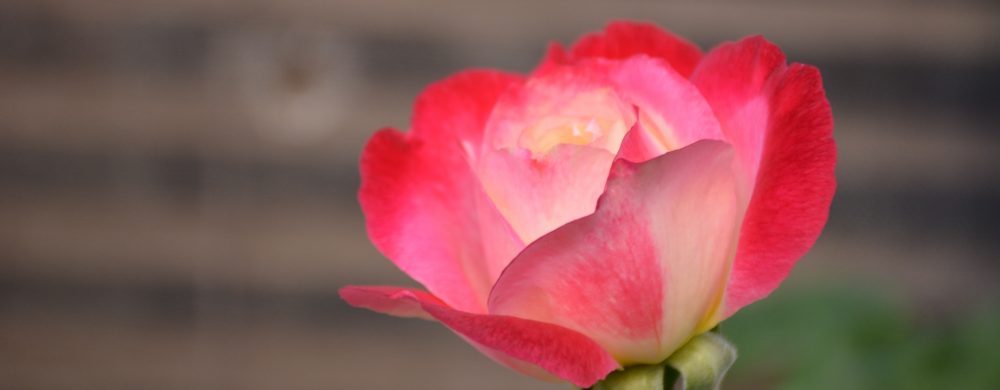 When driving on the freeway in heavy traffic and something happens ahead of your car, the tail lights of cars far up the freeway light up, warning you of problems down the road. It can look like the lights on an airplane landing strip, each red light sequencing its turn to glow immediately after the next one in front, so that fifty lights covering a mile can rush toward your car in just seconds. It can be an immediate warning system, if one chooses to see it. Flashing brake lights that far in advance of a problem, can save your life, unless you are so preoccupied by “other stuff” you don’t heed the warning. Unless you are too busy to see the warning signs; then a big crash may be in your near future.
When driving on the freeway in heavy traffic and something happens ahead of your car, the tail lights of cars far up the freeway light up, warning you of problems down the road. It can look like the lights on an airplane landing strip, each red light sequencing its turn to glow immediately after the next one in front, so that fifty lights covering a mile can rush toward your car in just seconds. It can be an immediate warning system, if one chooses to see it. Flashing brake lights that far in advance of a problem, can save your life, unless you are so preoccupied by “other stuff” you don’t heed the warning. Unless you are too busy to see the warning signs; then a big crash may be in your near future.
Tag Archives: important
The Vast Middle Ground
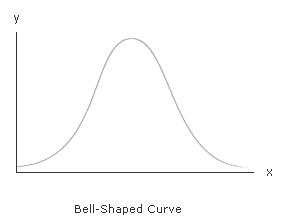 The bell shaped curve, that great equalizer of the school classroom, is meant to explain how a population of test scores will eventually unfold itself neatly along a predetermine path, thus displaying the test results into upper, lower, and average positions. In my eighth grade English class, I prayed that everyone else was as confused and ill-prepared as I, so the entire curve would be adjusted downward, giving me a fighting chance for a graded-on-the-curve C. But the concept of a predictable outcome of highs, mediums and lows, is not just used in school; cars are labeled as luxury, mid class, and economy, you can fly in first class, coach, or in lower fare seats. The bell shaped curve is also used to described our life (yours and mine), in terms of its quality when compared to everyone else. Are we middle class, upper class, or poor? Those labels are thrown at us by politicians, reporters, educators; the need for others to categorize our life into a single box is nearly fanatical in its scope.
The bell shaped curve, that great equalizer of the school classroom, is meant to explain how a population of test scores will eventually unfold itself neatly along a predetermine path, thus displaying the test results into upper, lower, and average positions. In my eighth grade English class, I prayed that everyone else was as confused and ill-prepared as I, so the entire curve would be adjusted downward, giving me a fighting chance for a graded-on-the-curve C. But the concept of a predictable outcome of highs, mediums and lows, is not just used in school; cars are labeled as luxury, mid class, and economy, you can fly in first class, coach, or in lower fare seats. The bell shaped curve is also used to described our life (yours and mine), in terms of its quality when compared to everyone else. Are we middle class, upper class, or poor? Those labels are thrown at us by politicians, reporters, educators; the need for others to categorize our life into a single box is nearly fanatical in its scope.
Perhaps worse is when we place our ability to be happy (content, or joyful) on a human bell shaped curve, relegating the amount of time we can spend being at the apex of life to 10-15 %, and when we are ‘just average’ to 70% of life’s timeline. I don’t believe people knowingly choose a mid-level happiness state for the bulk of their life, I think it just happens. I think we self-impose an expectation that being in a constant state of over-the-top exuberant happiness is wrong – only weird or naive people think like that. We tend to accept that good is good enough, and great is rare.
Ask someone the question, “How are you?” The overwhelming response is, “Good.” You will get a few greats, and a few that are ousy, but good will dominate. I submit that being great is a much more natural state that being good, and that we can, and should, redefine the curve to include more great, and less good and lousy. I believe that the plan was always for greatness, and we have deviated from where we can be.
Here are a few ways to move the bar towards great:
- Redefine the driving force that creates your personal happiness (or joy) away from external sources to internal ones. Try not to rely on a person, place or event to make you happy. Choose to be happy all on your own.
- Use your own definition for happiness, not that of someone else. It’s your life, you get to define it.
- If happiness and joy are elusive, try doing something great for someone else, and something great for yourself too. Feeling great spreads from person to person like butter on warm bread.
I’m not proposing an arrogant version of great or a prideful view of happy. Just the opposite, I am promoting a humble and sincere version of being at the top, where there is room for everyone.
I find joy in my faith, where I am told that I am special, I am one of a kind and I am loved beyond my capacity to comprehend. There is nothing wrong with feeling good, but there is something very right about being great.
Thanks for reading.
Heroes
Heroes
 “Dudley Do-Right, you are my hero!” was the all-encompassing praise of Nell, the ever so sweet girlfriend want-to-be of the good mannered, yet bumbling Canadian Mountie. Dudley’s goal in life, at least on the 1970’s cartoon, was to be Nell’s hero. Not a bad goal. We humans have, since the beginning of recorded history, searched for, and identified with a hero figure; someone that we want to emulate. Heroes are larger than life, they overcome great obstacles; heroes are fast, smart, typically good looking, wise, caring, brutal when dealing with a bad guy; yet humble, and kind to birds, kittens and bunny rabbits. Everyone wants to be a hero (at least secretly), and identifies with someone living, or from the past, that they call hero. Warriors have typically made good heroes for little boys, pitting good versus evil at terrible odds; but somehow good always triumphs. To be a hero it is important to win big and often. Explorers also commonly fall into the hero category, especially those who travel in either a wooden ship with many large sails, or a spacecraft with a single large engine; these explorers set out for places where “no one has gone before.” It is also important for a hero not to go to the same place over and over again, but to seek out exciting and dangerous new places. It is easier to be a hero if you are the creation in a book or movie, where life has a script to follow, and the writer can make certain that immoral choices are never made; where compromise is unknown and everyone (except for the bad guys) follows the rules. Life is much harder for the hero who lives, breathes, and makes decisions for themselves. We cannot just erase a bad drawing and start anew; real heroes, and their worshipers, must live with the consequences of a corrupt page.
“Dudley Do-Right, you are my hero!” was the all-encompassing praise of Nell, the ever so sweet girlfriend want-to-be of the good mannered, yet bumbling Canadian Mountie. Dudley’s goal in life, at least on the 1970’s cartoon, was to be Nell’s hero. Not a bad goal. We humans have, since the beginning of recorded history, searched for, and identified with a hero figure; someone that we want to emulate. Heroes are larger than life, they overcome great obstacles; heroes are fast, smart, typically good looking, wise, caring, brutal when dealing with a bad guy; yet humble, and kind to birds, kittens and bunny rabbits. Everyone wants to be a hero (at least secretly), and identifies with someone living, or from the past, that they call hero. Warriors have typically made good heroes for little boys, pitting good versus evil at terrible odds; but somehow good always triumphs. To be a hero it is important to win big and often. Explorers also commonly fall into the hero category, especially those who travel in either a wooden ship with many large sails, or a spacecraft with a single large engine; these explorers set out for places where “no one has gone before.” It is also important for a hero not to go to the same place over and over again, but to seek out exciting and dangerous new places. It is easier to be a hero if you are the creation in a book or movie, where life has a script to follow, and the writer can make certain that immoral choices are never made; where compromise is unknown and everyone (except for the bad guys) follows the rules. Life is much harder for the hero who lives, breathes, and makes decisions for themselves. We cannot just erase a bad drawing and start anew; real heroes, and their worshipers, must live with the consequences of a corrupt page.
We also like to expand the life of a hero into that of a role model. Not only will we praise the hero, and dream of them, but we will try to live just like our hero. “I want to be just like (fill in the blank) when I grow up.” John F Kennedy was a charismatic leader with true vision, and a great love for his country. Martin Luther King envisioned a better way to find the promise land, here at home. Neil Armstrong walked on the moon – we all saw it on TV. My list of heroes and role models included these people, and many more – sports figures, local celebrities, and of course, my Mother and Father. My parents were not always the hero in the moment, it was as I grew older, and had children of my own that their heroism became apparent.
Also, as I have aged, the reality that a hero / role model was imperfect has become abundantly clear. Heroes are people, and people are flawed; that was not a fact when I was ten, but it is now. Still, a person became my hero because of something specific that they were, or did: best batting average, first on the moon, amazing speech, or the finest example of character I have ever seen. Being human does not remove the heroic achievement, it gives it perspective. So, to cope with the reality of human heroes, we filter out the corrupt pages and only view the ones that fit the profile of our hero: kind, strong, wise, caring, decisive, moral, and fearless – a perfect role model as defined within our very human mind. The other pages: immoral, thief, liar, cheat, adulterer – they are torn out and cast aside, because they do not fit a hero’s mold. It is a very natural compromise, arising from the need to have a hero in our life, and the realization that a hero cannot be perfect in all things. I still keep heroes, who are human and very flawed; because I need them, and I think they need me. But, I realize, as I hope they do, that we are all a part of humanity, so perfection never enters into the conversation.
When I have a need for a flawless hero, I get on my knees and look up. I do this daily to remind myself, and Him, that perfection found its way to earth just once, and left an everlasting impression on all of us.
Thanks for reading.
Change
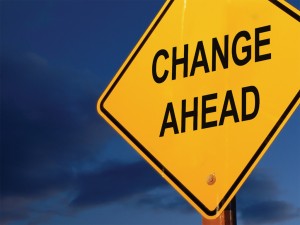 There is an old saying that “change is inevitable.” I suppose that is right, and I know that every major scientist from Galileo to Einstein would agree, since we are on a rock that is circling the sun even when we are sitting perfectly still (impossible to do), we are in motion and thus there is constant change around us. Their point is well taken, each new day has a different period of daytime than the previous, the temperature changes every day and night; humidity, wind speed – the list of measurements can go on forever, and they will all support the old saying about change. So the outside environment changes constantly, not only where you are, but from place to place as well. For instance, six days ago I was standing on a warm beach, it was 85 degrees outside, and the humidity was 75%. Today at home, it is a not-so-balmy 45 degrees and raining. (That is a weather change that I could do without!) When you ride a motorcycle, the temperature can change dramatically every minute as you move from shade to sun. How about inside changes, are they inevitable as well? I know this; it must have been the external environmental factors, probably humidity, that caused all of my clothing to shrink while on vacation, because everything fit tighter going home than when we arrived. Some changes we consider good, and look forward to its arrival, and some we fight, not wanting that aspect of our life to change. Certain changes we wait to happen, and there are some important matters that will never change. For instance:
There is an old saying that “change is inevitable.” I suppose that is right, and I know that every major scientist from Galileo to Einstein would agree, since we are on a rock that is circling the sun even when we are sitting perfectly still (impossible to do), we are in motion and thus there is constant change around us. Their point is well taken, each new day has a different period of daytime than the previous, the temperature changes every day and night; humidity, wind speed – the list of measurements can go on forever, and they will all support the old saying about change. So the outside environment changes constantly, not only where you are, but from place to place as well. For instance, six days ago I was standing on a warm beach, it was 85 degrees outside, and the humidity was 75%. Today at home, it is a not-so-balmy 45 degrees and raining. (That is a weather change that I could do without!) When you ride a motorcycle, the temperature can change dramatically every minute as you move from shade to sun. How about inside changes, are they inevitable as well? I know this; it must have been the external environmental factors, probably humidity, that caused all of my clothing to shrink while on vacation, because everything fit tighter going home than when we arrived. Some changes we consider good, and look forward to its arrival, and some we fight, not wanting that aspect of our life to change. Certain changes we wait to happen, and there are some important matters that will never change. For instance:
Cows Standing In a Field
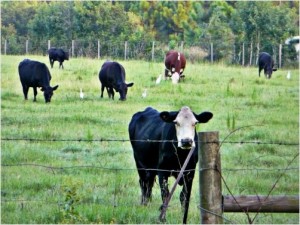 Driving to work I pass by many fields supporting various agricultural delights: corn, tomatoes, grapes, pears, and peaches to name a few. The most interesting field though, is the one that houses the cows. Big, Black Angus and white faced Herefords stand majestically, always seeming to face in the same direction, their heads slowly dropping down to pull up a pound or so of grass, then slowly raising again to munch their lunch. I noticed that they never actually finish lunch; it is an endless goal the cows keep trying to reach – all day long. At first glance, cows may seem less sophisticated than almost anything; not very interesting at all, but on closer inspection the average Angus reveals a methodic intelligence and sense of purpose that is easily overlooked. That big, smelly, slow moving creature may even display brief moments of wisdom.
Driving to work I pass by many fields supporting various agricultural delights: corn, tomatoes, grapes, pears, and peaches to name a few. The most interesting field though, is the one that houses the cows. Big, Black Angus and white faced Herefords stand majestically, always seeming to face in the same direction, their heads slowly dropping down to pull up a pound or so of grass, then slowly raising again to munch their lunch. I noticed that they never actually finish lunch; it is an endless goal the cows keep trying to reach – all day long. At first glance, cows may seem less sophisticated than almost anything; not very interesting at all, but on closer inspection the average Angus reveals a methodic intelligence and sense of purpose that is easily overlooked. That big, smelly, slow moving creature may even display brief moments of wisdom.
Are things getting any better?
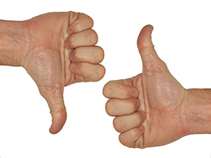 I received a survey in the mail this week that asked the question, “Are things getting and better?” The question wasn’t that direct, but the intention was clear. It occurred to me that my answer will differ from another person by the way we choose to define “things” and “better,” because my things will differ from yours, and better is a very relative term. My perspective at the moment the question is asked will play a big part in the answer too.
I received a survey in the mail this week that asked the question, “Are things getting and better?” The question wasn’t that direct, but the intention was clear. It occurred to me that my answer will differ from another person by the way we choose to define “things” and “better,” because my things will differ from yours, and better is a very relative term. My perspective at the moment the question is asked will play a big part in the answer too.
If I choose definition of “things” to be narrowly focused – my waistline or retirement account, then I might conclude things are not getting better, since one is increasing and the other decreasing (guess which is increasing).
Who?
 We were talking at my Bible study last Wednesday about how God will come to us no matter where we are at. We can be in a time where life is good; there is peace at home, the job is good; or maybe in a place when life isn’t so peaceful. Maybe there isn’t a job, or it’s not the one you want. Maybe the peace at home isn’t real, and the underlying stress is chewing through your insides. Maybe some days are really good and some are just OK. One thing is certain, everyone is going through something that is stressful, or if they aren’t, then someone they love is. Our belief is that God is standing right next to every one of us, all of the time, helping to make the day better even if we don’t ask for help. He doesn’t solve all of our problems, He makes it easier for us to solve them ourselves, and so we exit the troubled times in better shape. At the Bible study, we talked mostly about the where and when of our interactions with God. Today, I want to explore the who in our relationship with God.
We were talking at my Bible study last Wednesday about how God will come to us no matter where we are at. We can be in a time where life is good; there is peace at home, the job is good; or maybe in a place when life isn’t so peaceful. Maybe there isn’t a job, or it’s not the one you want. Maybe the peace at home isn’t real, and the underlying stress is chewing through your insides. Maybe some days are really good and some are just OK. One thing is certain, everyone is going through something that is stressful, or if they aren’t, then someone they love is. Our belief is that God is standing right next to every one of us, all of the time, helping to make the day better even if we don’t ask for help. He doesn’t solve all of our problems, He makes it easier for us to solve them ourselves, and so we exit the troubled times in better shape. At the Bible study, we talked mostly about the where and when of our interactions with God. Today, I want to explore the who in our relationship with God.
